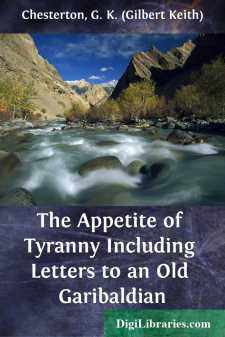Categories
- Antiques & Collectibles 13
- Architecture 36
- Art 48
- Bibles 22
- Biography & Autobiography 813
- Body, Mind & Spirit 142
- Business & Economics 28
- Children's Books 17
- Children's Fiction 14
- Computers 4
- Cooking 94
- Crafts & Hobbies 4
- Drama 346
- Education 46
- Family & Relationships 57
- Fiction 11829
- Games 19
- Gardening 17
- Health & Fitness 34
- History 1377
- House & Home 1
- Humor 147
- Juvenile Fiction 1873
- Juvenile Nonfiction 202
- Language Arts & Disciplines 88
- Law 16
- Literary Collections 686
- Literary Criticism 179
- Mathematics 13
- Medical 41
- Music 40
- Nature 179
- Non-Classifiable 1768
- Performing Arts 7
- Periodicals 1453
- Philosophy 64
- Photography 2
- Poetry 896
- Political Science 203
- Psychology 42
- Reference 154
- Religion 513
- Science 126
- Self-Help 84
- Social Science 81
- Sports & Recreation 34
- Study Aids 3
- Technology & Engineering 59
- Transportation 23
- Travel 463
- True Crime 29
The Appetite of Tyranny Including Letters to an Old Garibaldian
Description:
Excerpt
THE FACTS OF THE CASE
Unless we are all mad, there is at the back of the most bewildering business a story: and if we are all mad, there is no such thing as madness. If I set a house on fire, it is quite true that I may illuminate many other people's weaknesses as well as my own. It may be that the master of the house was burned because he was drunk; it may be that the mistress of the house was burned because she was stingy, and perished arguing about the expense of the fire-escape. It is, nevertheless, broadly true that they both were burned because I set fire to their house. That is the story of the thing. The mere facts of the story about the present European conflagration are quite as easy to tell.
Before we go on to the deeper things which make this war the most sincere war of human history, it is easy to answer the question of why England came to be in it at all, as one asks how a man fell down a coal-hole, or failed to keep an appointment. Facts are not the whole truth. But facts are facts, and in this case the facts are few and simple. Prussia, France, and England had all promised not to invade Belgium. Prussia proposed to invade Belgium, because it was the safest way of invading France. But Prussia promised that if she might break in, through her own broken promise and ours, she would break in and not steal. In other words, we were offered at the same instant a promise of faith in the future and a proposal of perjury in the present. Those interested in human origin may refer to an old Victorian writer of English, who, in the last and most restrained of his historical essays, wrote of Frederick the Great, the founder of this unchanging Prussian policy. After describing how Frederick broke the guarantee he had signed on behalf of Maria Theresa, he then describes how Frederick sought to put things straight by a promise that was an insult. "If she would but let him have Silesia, he would, he said, stand by her against any power which should try to deprive her of her other dominions, as if he was not already bound to stand by her, or as if his new promise could be of more value than the old one." That passage was written by Macaulay, but so far as the mere contemporary facts are concerned, it might have been written by me.
Upon the immediate logical and legal origin of the English interest there can be no rational debate. There are some things so simple that one can almost prove them with plans and diagrams, as in Euclid. One could make a kind of comic calendar of what would have happened to the English diplomatist if he had been silenced every time by Prussian diplomacy. Suppose we arrange it in the form of a kind of diary.
July 24. Germany invades Belgium.
July 25. England declares war.
July 26. Germany promises not to annex Belgium.
July 27. England withdraws from the war.
July 28. Germany annexes Belgium. England declares war.
July 29. Germany promises not to annex France. England withdraws from the war.
July 30. Germany annexes France. England declares war.
July 31....












